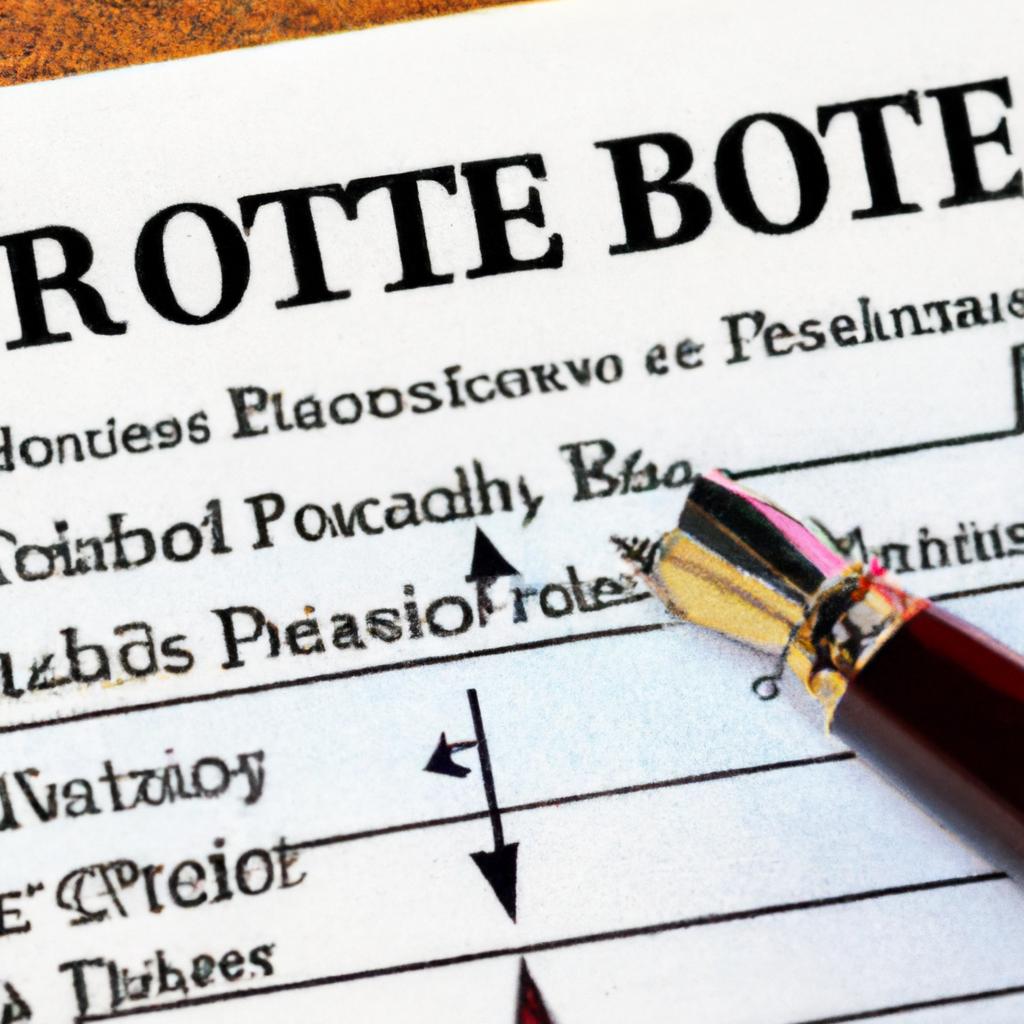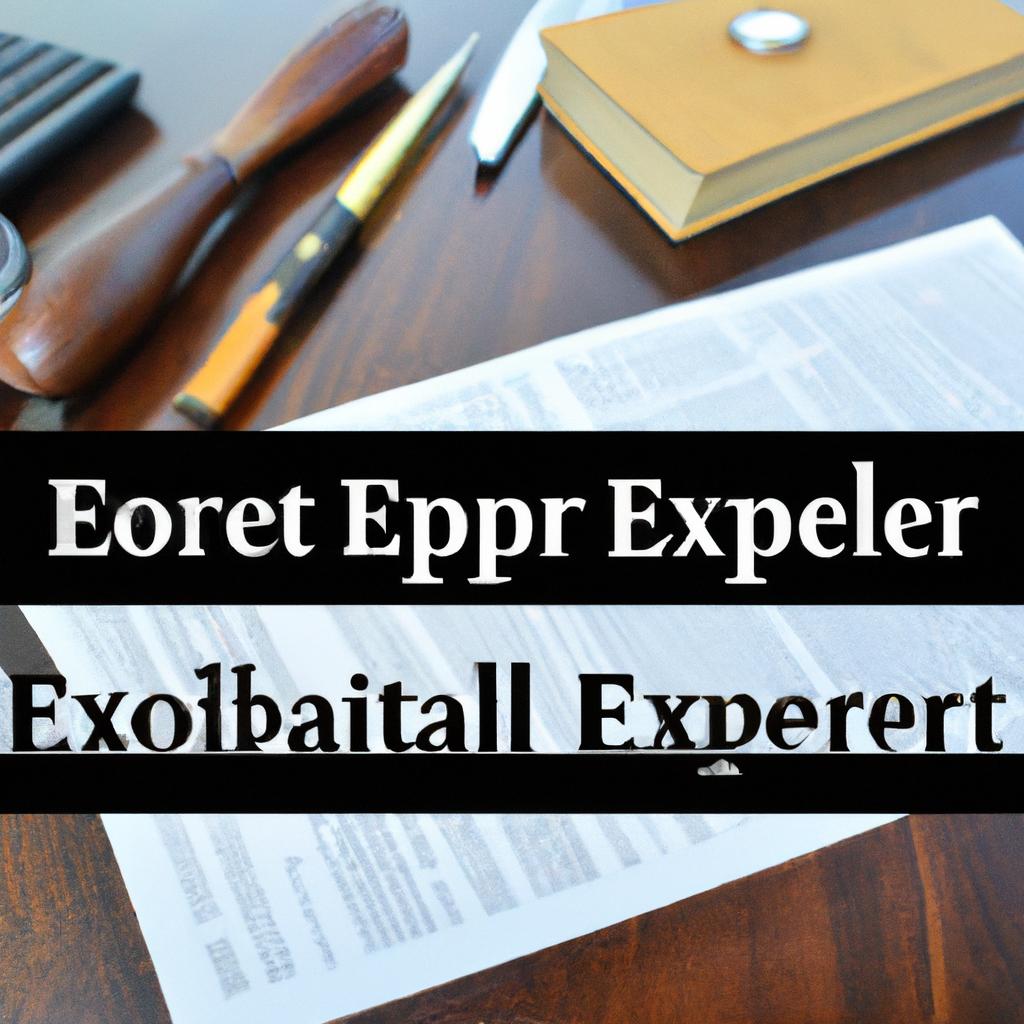Navigating the complexities of probate can be a daunting task for many individuals grappling with the loss of a loved one. At Morgan Legal Group, we understand the importance of guiding our clients through the probate process with clarity and efficiency. In this article, we will delve into the essential factors that determine the cost of probating a will, providing valuable insights for those seeking to ensure the seamless administration of their estate. As seasoned practitioners in estate planning and elder law, we are committed to delivering comprehensive and personalized solutions to meet our clients’ needs in New York City and beyond.
Factors influencing the cost of probating a will
Finding out how much it will cost to probate a will can vary depending on a number of factors. One of the main factors influencing the cost is the size and complexity of the estate. Larger estates with multiple properties, investments, and assets will generally incur higher probate costs compared to smaller, simpler estates.
Another factor to consider is the state in which the probate process takes place. Each state has different laws and fees associated with probate, so it’s crucial to understand the specific regulations in your area. Additionally, the presence of any disputes or challenges to the will can also impact the overall cost of probate, as legal proceedings can prolong the process and increase legal fees.

Recommended steps to minimize probate expenses
When it comes to minimizing probate expenses, there are several recommended steps that individuals can take to ensure a smoother process and reduce costs:
- Create a Living Trust: One of the most effective ways to avoid probate expenses is to create a living trust. By transferring assets to a trust, they are no longer considered part of the probate estate, resulting in lower costs and a faster distribution of assets.
- Name Beneficiaries: Designating beneficiaries on assets such as retirement accounts, life insurance policies, and bank accounts can help bypass the probate process entirely, reducing expenses and simplifying the transfer of assets.
| Asset | Beneficiary |
|---|---|
| Retirement Account | Spouse |
| Life Insurance Policy | Children |
By taking these proactive steps and working with an experienced attorney, individuals can minimize probate expenses and ensure that their assets are distributed according to their wishes.

Understanding the breakdown of probate fees and expenses
When it comes to , it is essential to have a clear understanding of the costs involved in the probate process. Probate fees can vary depending on the size and complexity of the estate, as well as the state in which the probate is taking place. Here are some common expenses associated with probate:
- Court Fees: The court fees for filing the necessary probate documents can vary depending on the state and the size of the estate.
- Attorney Fees: Hiring an attorney to guide you through the probate process can be one of the most significant expenses. Attorney fees are usually based on an hourly rate or a flat fee.
- Executor Fees: The executor of the estate is entitled to receive a fee for their services. This fee can also vary depending on the state and the size of the estate.
It is important to keep in mind that other expenses, such as appraisal fees, accounting fees, and filing fees, may also add to the overall cost of probate. However, working with a knowledgeable probate attorney can help you navigate the process and ensure that you are not overwhelmed by the fees and expenses.

Expert tips for navigating the probate process efficiently and cost-effectively
When it comes to navigating the probate process efficiently and cost-effectively, there are several expert tips that can help you achieve your goals. One key piece of advice is to ensure that the will is drafted clearly and accurately, as any ambiguity or errors can lead to delays and increased costs. Another important tip is to gather all necessary documents and information before beginning the probate process, including the deceased’s assets, debts, and beneficiaries.
Additionally, it can be beneficial to work with an experienced probate attorney who can guide you through the process and help you avoid common pitfalls. By following these expert tips, you can streamline the probate process and minimize expenses, allowing you to focus on honoring your loved one’s wishes and settling their estate in a timely manner.
Q&A
Q: What is probate and why is it necessary?
A: Probate is the legal process of administering a deceased person’s estate. It is necessary to ensure that the deceased person’s assets are distributed according to their will or according to state law if there is no will.
Q: How much does it cost to probate a will?
A: The cost of probating a will can vary depending on several factors, including the complexity of the estate, the location of the probate court, and the attorney’s fees. On average, the total cost can range from a few thousand dollars to tens of thousands of dollars.
Q: What are the main expenses involved in probating a will?
A: The main expenses involved in probating a will typically include court fees, attorney’s fees, executor’s fees, and any other fees required to administer the estate, such as appraisal fees and accounting fees.
Q: Are there any ways to reduce the cost of probating a will?
A: There are some strategies that can help reduce the cost of probating a will, such as avoiding probate altogether by using a living trust, making sure the will is properly executed and witnessed, and choosing an experienced and efficient probate attorney.
Q: How long does the probate process usually take?
A: The length of the probate process can vary depending on the complexity of the estate and any unforeseen complications that may arise. In general, the process can take anywhere from a few months to a few years to complete.
In Summary
In conclusion, the cost of probating a will can vary depending on various factors such as the complexity of the estate and the services of the professionals involved. While the process may seem overwhelming, it is important to remember that proper planning and guidance can help ease the financial burden. By understanding the potential costs and seeking advice from experienced professionals, you can navigate the probate process with confidence. Remember, every situation is unique, and it is always advisable to seek tailored advice to ensure a smooth probate process.
 Probating a will is the legal process of proving its validity in court. It typically involves the steps of identifying and gathering the deceased’s assets, paying any outstanding debts and taxes, and distributing the remaining assets to the designated beneficiaries. It can be a complex and time-consuming process, and one of the most common questions people ask is, “how much does it cost to probate a will?” In this article, we will discuss the factors that determine the cost of probating a will and provide practical tips to minimize these expenses.
Probating a will is the legal process of proving its validity in court. It typically involves the steps of identifying and gathering the deceased’s assets, paying any outstanding debts and taxes, and distributing the remaining assets to the designated beneficiaries. It can be a complex and time-consuming process, and one of the most common questions people ask is, “how much does it cost to probate a will?” In this article, we will discuss the factors that determine the cost of probating a will and provide practical tips to minimize these expenses.
Factors Affecting the Cost of Probating a Will:
1. The complexity of the estate: The complexity of the estate is one of the main factors that can impact the cost of probating a will. If the estate has multiple assets, such as properties, investments, and businesses, the probate process may involve more legal work, and thus, be more expensive. Additionally, if there are any disputes or challenges to the will, it can prolong the process and increase the overall cost.
2. The state’s probate laws: Each state has its own probate process and laws governing it. Some states have simpler and more streamlined processes, while others have more complex and lengthy procedures. This can affect the cost of probating a will, as states with more complicated processes may require more professional services from lawyers and accountants, resulting in higher fees.
3. Executor and legal fees: The executor, typically appointed by the deceased in their will, is responsible for overseeing the probate process. Depending on the complexity of the estate, the executor may require the assistance of a lawyer to navigate the legal aspects of probate. Lawyers will charge a fee for their services, and this can vary depending on their experience and the complexity of the probate process.
4. Court fees: The court charges fees for filing documents and overseeing the probate process. These fees vary from state to state and can also depend on the value of the estate. The larger the estate, the higher the court fees will be.
5. Appraisal and accounting fees: Appraisers are hired to determine the value of the deceased’s assets, while accountants may be needed to prepare the final tax return for the estate. These professional services come at a cost, and their fees can add up during the probate process.
The Average Cost of Probating a Will:
The cost of probating a will can vary significantly depending on the factors mentioned above. However, as a general guide, the national average cost for probate is around 3-7% of the total estate value. This means that if a will states an estate worth $500,000, the probate process could cost anywhere from $15,000 to $35,000.
Practical Tips for Reducing the Cost of Probating a Will:
1. Plan ahead: One of the most effective ways to reduce the cost of probating a will is to plan ahead. By creating a comprehensive estate plan, you can minimize the complexities of your estate and potentially avoid the probate process altogether. This can save your loved ones time, stress, and money in the long run.
2. Choose your executor carefully: As the executor will be responsible for overseeing the probate process, it is crucial to choose someone you trust and who has the necessary skills and knowledge to handle the estate’s affairs. Choosing a competent executor can help minimize the need for professional services, thus reducing the cost of probate.
3. Consider alternatives to probate: In some cases, there may be alternatives to probate, such as joint ownership, beneficiary designations, or trusts. These can help avoid the probate process altogether and save time and money.
4. Shop around for legal services: If you do need to hire a lawyer for the probate process, it is essential to shop around and compare fees. You can also ask for referrals from friends or family members who have gone through a similar process to find a lawyer with experience in probate.
5. Communicate openly with beneficiaries: To prevent any potential disputes or challenges to the will, it is essential to communicate openly with the beneficiaries and keep them updated throughout the probate process. This can help avoid any delays or legal battles that can increase the overall cost of probate.
In conclusion, the cost of probating a will can be affected by various factors, including the complexity of the estate, state laws, and professional fees. While it is impossible to determine the exact cost without considering all these factors, planning ahead, choosing a competent executor, and exploring alternatives to probate can help minimize these expenses. It is crucial to seek professional guidance and keep open communication with beneficiaries to ensure a smooth and cost-effective probate process.







